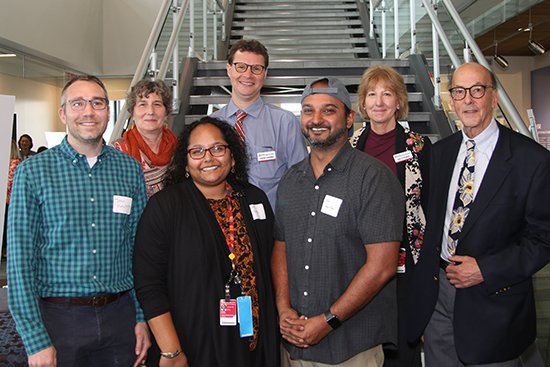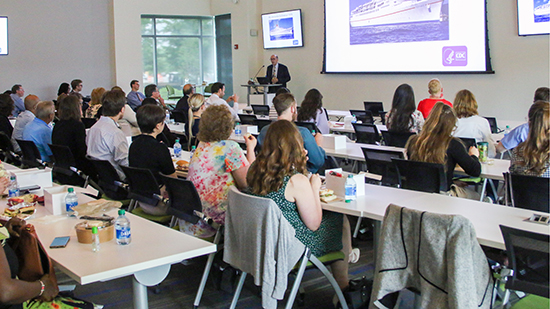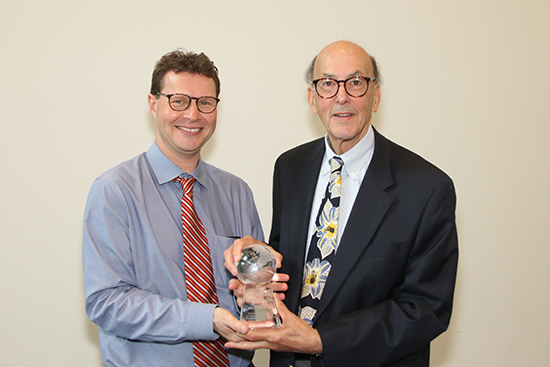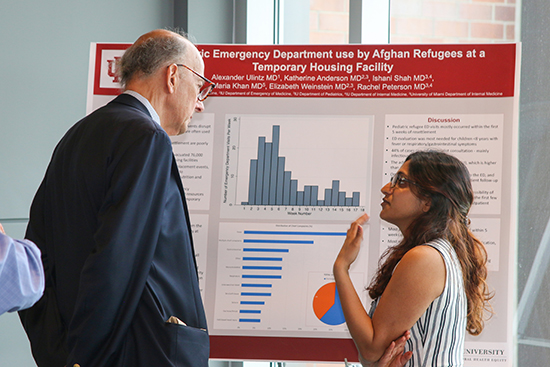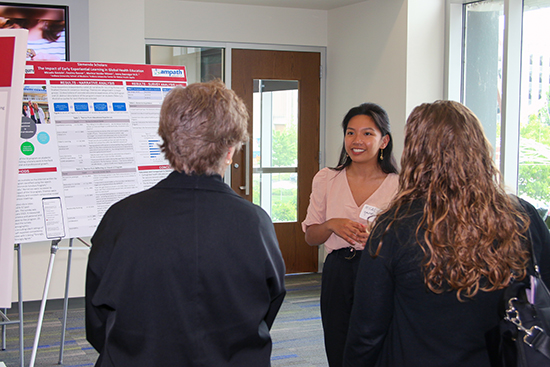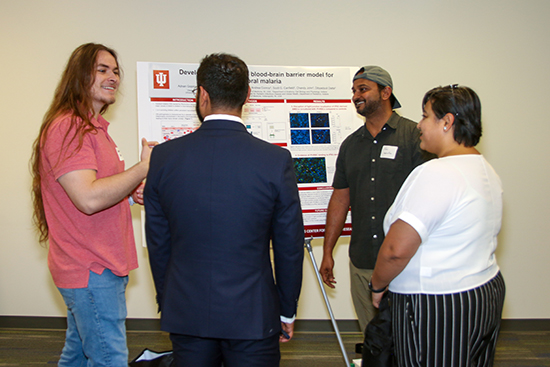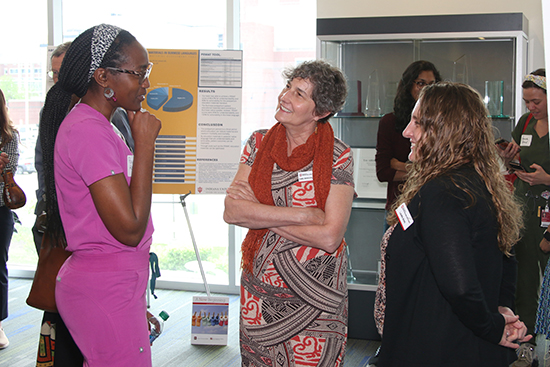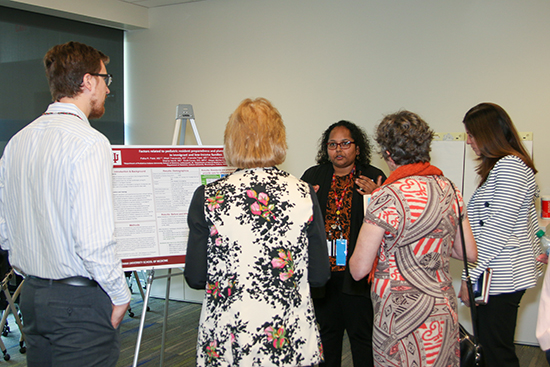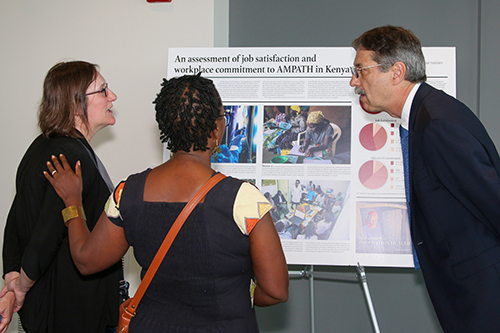The inaugural Global Health Equity Award was presented to Roger I. Glass, MD, PhD, senior scientist emeritus and former director of the Fogarty International Center at the National Institutes of Health (NIH) during the 5th annual Global Health Scholars Day hosted by the Indiana University Center for Global Health Equity (IUCGHE) on May 12.
“Through his commitment and advocacy for neglected populations, Dr. Glass has dramatically expanded the NIH's investments in diseases that disproportionately affect populations in lower resource settings. He has transformed the field of global health as he improved the lives of millions worldwide,” said Adrian Gardner, MD, MPH, director of the IUCGHE. “There truly could not be a more fitting recipient for this inaugural award than Dr. Roger Glass.”
The award will be presented annually to someone who has made significant contributions to the field of global health by demonstrating a commitment to equity, responding to the needs of a population or community and providing long-term engagement and partnership through their global health work. The awardee will be invited to present at Global Health Scholars Day.
Dr. Glass provided personal reflections on global health, the Fogarty International Center and the future to a full house of students, faculty and staff at the Regenstrief Institute during Medicine Grand Rounds. “I've been to Eldoret, Kenya (AMPATH) three times, but this is my first time in Indiana. It's really a delight to be with you and to thank Indiana for your contribution to global health,” began Dr. Glass. “I've had someone from Indiana on my (Fogarty) board ever since the beginning, and I’m an East Coast guy who didn't even know where Indiana was,” he joked.
Dr. Glass praised the people at AMPATH and IU for leadership, innovation and partnerships in global health, and for creating the model for bringing academics into changing healthcare and improving health for all. “You are doing it right in Indiana,” he said.
During the presentation, he shared a series of lessons learned from his career:
- Start early and spend time in the field
- The obvious solutions are not always correct, and the correct solutions are not always obvious
- Global health and local health are not opposites
- Good human chemistry builds great partnerships
- Great mentorship is critical
- Implementation is an underappreciated challenge
- The frontiers of science may not be at home—take science where the problems are!
In addition to Dr. Glass’s presentation, dozens of faculty and trainees presented posters on a variety of global health care, training and research topics.
“Training the next generation of people in global health, like the people in this room and the people with posters, is really the future of this field. This is a call out to all of you scholars who are in training that there are great opportunities here,” Dr. Glass said. “Training grants are the name of the game at Fogarty and putting those investments into young people to become researchers and academics.” Although the Fogarty Center is only allocated 0.2 percent of the NIH budget they partner and network with other NIH agencies to expand their reach. They have built a robust global health pipeline for both US investigators and investigators in low- and middle-income countries. Over the last 20 years, more than 1,400 Fogarty Fellows and Scholars have received training grants, including many from IU.
Dr. Glass sees future trends in global health including aging populations, data science, health equity, pandemic preparedness and response, climate change impact, environmental exposures, information and disinformation, migration and humanitarian crises and embracing the “omics” such as genomics and proteomics. “At AMPATH you're way ahead of the curve on these things. I'm excited about what you're doing. I'm so delighted also that you have support from Fogarty for your young investigators in training.”
Top global health posters and presenters recognized during the event were:
- “A human pluripotent stem cell-derived model of the blood-brain barrier in cerebral malaria” -- Adnan Gopinadhan, PhD candidate
- “Preferences of Pregnant and Postpartum Women for Differentiated HIV Services in Kenya”—John Humphrey, MD
- “Factors related to pediatric resident preparedness and plans to care for children in immigrant and low-income families”—Palka Patel, MD
“As Dr. Glass pointed out, the lessons we learn from our global health collaborations do not just improve the lives of people in other countries, they also improve healthcare in the US and in Indiana,” added Debra Litzelman, MD, MACP, director of education for IUCGHE. “This is why our center is focused on reciprocal innovation, so we can make sure that effective health interventions, technologies, and programs are implemented anywhere they can help.”
Jenny Baenziger, MD, associate director of education for IUCGHE, emphasized the many disciplines beyond medicine can make an impact on health. “We welcome people throughout the university to join us in these partnerships,” she said. “We invite those interested in global health equity to attend our monthly research speaker series, subscribe to our newsletter and join the center as an affiliated faculty member.”


